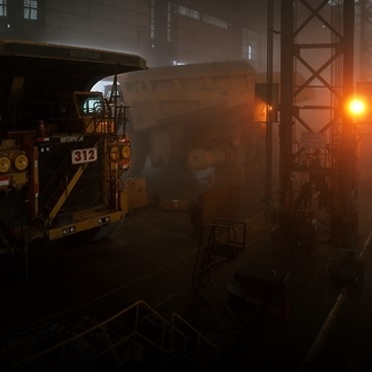Freeport Indonesia Speeds up Land Acquisition to Secure Export Permit
After the government of Indonesia threatened to revoke the export permit of Freeport Indonesia by the end of January on claims that the company fails to show its commitment to establish a new copper smelter in Southeast Asia’s largest economy, the local unit of US mining giant Freeport-McMoRan Copper & Gold (re)confirmed today that it is serious to build the smelter. Based on renegotiations between the government and Freeport Indonesia (agreed upon in July 2014), the company had been allowed to resume copper concentrate.

A shock ravaged through Indonesia’s mining sector after the Indonesian government introduced Law 4/2009 on Mineral and Coal Mining (Minerba), also known as the “New Mining Law”, in 2009. Through this new law Indonesia seeks more state revenue from the mining sector as well as taking a more protectionist approach regarding its natural resources. The new law includes a limitation to concession areas for miners, higher royalties, and larger domestic ownership through an obliged share divestment scheme for foreign mining companies. It also stipulates a ban on exports of unprocessed minerals (which started in January 2014), thus forcing miners to process their output domestically first. Through this ban the government targets for more state income from value-added exports and reducing the country’s reliance on raw commodity exports. However, currently there is not enough domestic processing capacity, meaning that stockpiles of raw material increased and the country’s export performance declined placing more pressure on the wide current account deficit. It will take at least three to five years before smelting capacity increases. Only 20 smelters (of a planned total of 63 smelters) are currently being constructed. Combined, the 63 smelters will require USD $165 billion in investments.
To find a middle way, the government decided in mid-2014 that several miners could resume exports of unprocessed minerals up to 2017 but under strict conditions. In July 2014, Freeport Indonesia and the government agreed that the miner could resume copper concentrate exports (after a six-month standstill) provided that they construct domestic smelting facilities, pay a 7.5 percent tax on copper concentrate exports, and pay higher royalties (3.75 percent for gold, 4 percent for copper and 3.25 percent for silver). Lastly, the miner had to pay a USD $115 million deposit to the government.
However, earlier this week problems resurrected after Indonesian Energy and Mineral Resources Minister Sudirman Said warned that Freeport Indonesia may lose its export permit by the end of January 2015 due to the lack of progress made in the establishment of the new copper smelter. Reportedly, the miner has still not finished the land acquisition process for the USD $2.3 billion smelter.
Freeport Indonesia President Director Maroef Syamsuddin replied on Thursday (22/01) that the miner will sign a memorandum of understanding (MoU) with state-owned petrochemical company Petrokimia Gresik in Gresik (East Java) to use a 60-hectares piece of land that is owned by Petrokimia Gresik as the location for the new smelter. Whether this land will be bought or rented by Freeport Indonesia remains unclear. The company already holds a 25 percent stake in a copper smelter in Gresik (PT Smelting) and decided to build the new smelter close to PT Smelting as local infrastructure is already sufficient (including a harbor). The new smelter is expected to have a capacity of 300,000 metric tons per year.
Freeport Indonesia operates the Grasberg mine in West Papua. This mine is the world's largest gold mine and third-largest copper mine. Although the miner’s contract to operate the Grasberg mine will expire in 2021 it is expected to be given a 20-year extension (to which it is entitled according to an agreement made in 1991). Apart from the USD $2.3 billion for the new smelter, Freeport Indonesia will spend another USD $15 billion on development of underground copper and gold deposits at the Grasberg mine.
Bahas
Silakan login atau berlangganan untuk mengomentari kolom ini

